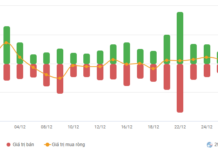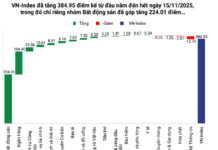As informed, recently on an online forum, a case of mistaken transfer has caught the attention of many due to its quite “unfortunate” situation.
Specifically, Ms. T.V (Bac Giang) shared that she mistakenly transferred 35 million VND to the credit card of someone named T. She had previously transacted with this person and still had their account number saved in her banking app. On the day of the incident, she intended to transfer money to another person with the same name but accidentally pressed the wrong account.
Complicating the matter, T’s account was a credit card with outstanding debt, so when Ms. T.V transferred the money, the bank automatically deducted the amount to settle T’s debt. She contacted T to request a refund, but T replied that they were unable to return the money. T also argued that they had not used the funds and, therefore, bore no responsibility for the incident.
Commenting on this situation, Lawyer Truong Thanh Duc, Executive Director of ANVI Law Firm, opined that the recipient of the mistaken transfer is obliged to refund the money to the sender, as they have unintentionally benefited by settling their overdue debt with the bank.
“The bank is not at fault”
Lawyer Truong Thanh Duc stated that the bank has the right to deduct money from a customer’s account to collect debt based on the agreement with the account holder (credit card owner) and legal provisions.
Traditionally, the law has permitted automatic debt collection by banks. Specifically, banks have the right to “proactively deduct from the customer’s payment account” “according to a prior written agreement between the payment account holder and the bank” “to make regular or periodic payments or collect due, overdue debt, interest, and other incurred expenses” according to the provisions of the fourth paragraph, point a, paragraph 1, Article 21. Rights and Obligations of Banks, Branches of Foreign Banks”, Circular No. 17/2024/TT-NHNN dated June 28, 2024, of the Governor of the State Bank of Vietnam “Prescribing the opening and use of payment accounts at payment service providers.”
Only in the event of a court ruling would the bank be required to refund the money automatically deducted from the credit card account of Mr. T.
“Both the sender and the recipient are at fault”
According to the lawyer, the mistake made by the sender in this case is “mistaken, lost, and unintentionally lost money”. However, this is a mistake, not a violation of the law. The account holder, whose money came and went automatically, may not be aware of this, but their non-cooperation to resolve the issue turns their non-culpability into a violation of the law.
“The recipient of the transferred money has the responsibility to refund the sender because they have unintentionally benefited by settling their overdue debt with the bank,” said Mr. Truong Thanh Duc.

If the recipient refuses to refund voluntarily, the sender has the right to file a lawsuit in court to reclaim their money according to Clause 1, Article 166 on “The Right to Claim Property”, 2015 Civil Code: The owner has the right to claim property from the beneficiary without legal grounds.
Even though the money is no longer in the recipient’s account, it is still considered similar to the account holder “holding” the property. Therefore, it is possible to consider processing for the act of holding property.
If the recipient has the ability to repay but intentionally refuses, they may also be subject to administrative sanctions ranging from 3 to 5 million VND and forced repayment for the act of “holding the property of others” according to Point d, Clause 2, Article 15 on “Violations of regulations on causing damage to the property of organizations and individuals”, Decree No. 144/2021/ND-CP dated December 31, 2021, of the Government “Detailing the punishment of administrative violations in the fields of security, social order and safety; crime prevention; social evils prevention; fire prevention and fighting; rescue and rescue; prevention of domestic violence.”
They may even face criminal penalties under Clause 1, Article 176 on “The crime of illegally holding property”, 2015 Criminal Code (amended and supplemented in 2017): A person who intentionally refuses to return to the owner property worth from VND 10 million to less than VND 200 million that has been mistakenly delivered shall be subject to a fine of between VND 10 million and VND 50 million, non-custodial reform for up to two years, or imprisonment from three months to two years.
Lessons from mistaken transfer cases
According to Lawyer Truong Thanh Duc, to avoid situations like the above, firstly, the sender must be extremely careful if they do not want to put themselves at risk, in a difficult position, or even lose money and suffer consequences.
“For those who suddenly see money appearing in their account, don’t be too happy and think of the folk saying, ‘It’s lucky to pick up silver, but unlucky to pick up gold,’ because transferred money is not ‘silver,’ and of course, it’s not silver. Sometimes, money can even become a problem,” shared the expert.
Of course, the law must protect the owner of the money mistakenly transferred from their account and simultaneously not recognize the “unfounded benefit” of the recipient’s account. This means that the sender has the right to claim, and the recipient has the obligation to return the money; it’s just a matter of how and when the repayment will be made.
Therefore, when receiving a mistaken transfer into an account, one should not feel “lucky” because it can often lead to loss. At the very least, it can cause inconvenience, trouble, and a waste of time to resolve the issue.
Unlike finding money or other unowned property, where the finder may benefit according to legal regulations, mistakenly transferred money always has a clear source and owner, not falling from the sky.
If one intentionally holds on to and uses the money without returning it (even if received according to a contractual agreement), they may not only be liable for civil damages but also face administrative or criminal penalties.
Mr. Truong Thanh Duc also noted that the recipient should be cautious about criminal schemes where money is deliberately pushed into an account to set a trap, followed by extortion using coercive means. In such cases, returning the money independently can be risky and dangerous, and one should seek the assistance of the bank and the police.
“Car Owner’s Fury: A Tale of Two MG5s – ‘Shoddy Work, Paint Started Peeling After 20 Days, Staff Shirking Responsibility’”
The sloppy paint job on Nguyen Thi Quynh Tram’s two MG5 MTs has become a hot topic of discussion among MG car enthusiasts in Vietnam.








































